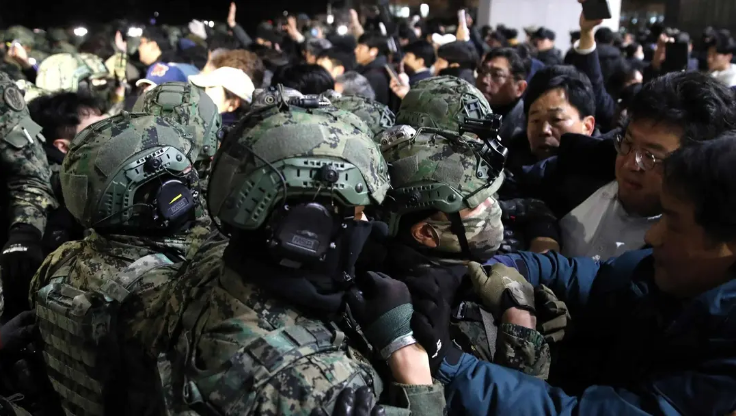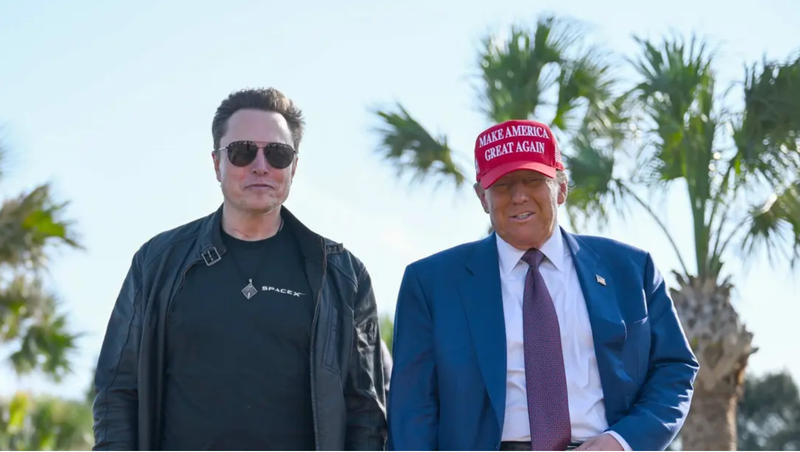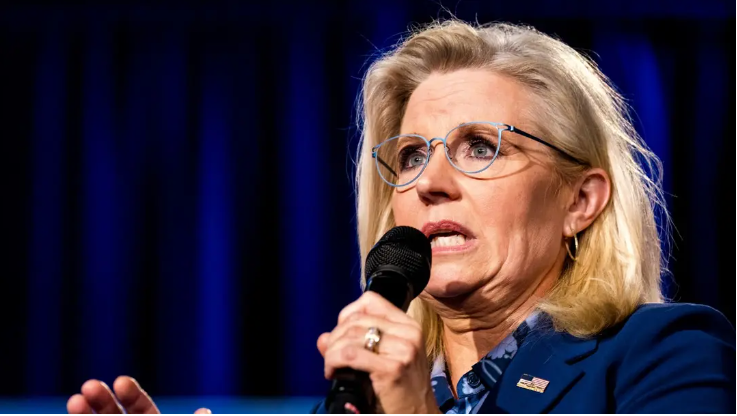South Korea: Police Raid Presidential Office, Ex-Minister Attempts Suicide
South Korean police on Wednesday raided Pres. Yoon Suk Yeol's office as part of an investigation into his Dec. 3 martial law declaration. However, investigators were blocked from entering the main building.
Facts
- South Korean police on Wednesday raided Pres. Yoon Suk Yeol's office as part of an investigation into his Dec. 3 martial law declaration. However, investigators were blocked from entering the main building.[1][2]
- According to The Korea Times, investigators carried a search warrant to seize evidence — including minutes of Cabinet meetings held before and after Yoon's declaration — and identified Yoon as "the leader" of an alleged insurrection.[3]
- Besides Yoon's office, the investigating team conducted searches-and-seizures at the National Police Agency, the Seoul Metropolitan Police Agency, and the National Assembly Security Service.[4]
- On Tuesday, Kwak Jong-geun, commander of the Army Special Warfare Command, testified that Yoon had ordered him "to quickly break down the door and drag out" lawmakers during the martial law decree vote.[5][6]
- This comes as Yoon's former Defense Minister Kim Yong-hyun reportedly attempted suicide in custody and was later formally arrested on insurrection charges, along with two senior police officials, including the national police chief.[1][7]
- Yoon has been banned from leaving the country and faces a criminal investigation for alleged treason. Meanwhile, the Democratic Party is preparing a second impeachment bid, which, if successful, would allow Prime Minister Han Duck-soo to temporarily assume presidential responsibilities.[8][9]
Sources: [1]Reuters, [2]Yonhap News Agency, [3]The Korea Times, [4]France 24, [5]The Guardian, [6]NBC, [7]The New York Times, [8]The Japan Times and [9]Al Jazeera.
Narratives
- Narrative A, as provided by Bloomberg and Le Monde. Yoon's poorly timed decree was an illegal power grab and attempted coup that warrants criminal prosecution. With a long history of military-authoritarian rule, the country can't afford leadership mired in uncertainty. The depths of his political miscalculation have tested the resilience of South Korea's democracy and underscored the need for Yoon to relinquish his post and face the law for the greater good of the country.
- Narrative B, as provided by The Sunday Guardian and The Korea Times. The martial law declaration was necessary to protect South Korea from North Korean threats and maintain domestic stability. However, Yoon didn't wrest absolute authority by whatever means necessary; instead, he quickly rescinded the decree when it became clear it lacked public support. The country would be plunged into greater uncertainty if a patriot — who can defend himself before the Constitutional Court and is committed to the unification of the Korean peninsula — is impeached.







